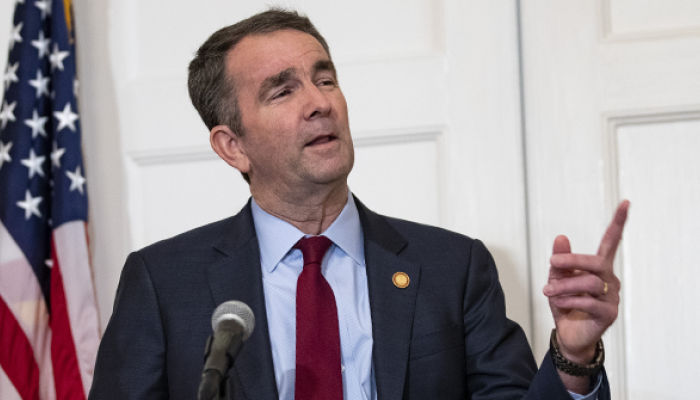Virginia Governor Ralph Northam. Image: Alex Edelman/Getty
Despite calls for his resignation since racist photos in his medical-school yearbook came to light last week, Governor Ralph Northam of Virginia has not yet stepped down. But Theodore R. Johnson, a Senior Fellow at the Brennan Center for Justice, argues that despite the moral indignation in those calls to resign, “in politics, resignations—like apologies and impeachments—are political acts, not moral ones.”
Johnson writes, “If this was really the beginning of the ever-elusive national conversation on race, the focus would not have immediately gone to Northam’s elected office. Instead, it would’ve centered on why blackface is hurtful, an exploration of why white Americans continue to engage in it, an understanding of how such racist depictions have real socioeconomic consequences, and a commitment to social education and change enacted through a concrete policy agenda.”
Of course, that has not been the focus. But the incident serves as a reminder that in the culture today, “Racial norms are shaped by the consequences of violating them. This is why Jim Crow laws and vigilante lynch mobs went hand-in-hand. And it is why blackface went from America’s most popular form of performance to a political and social death knell. As evinced in the Northam episode … the offenders, no matter the party, are too much of a political vulnerability for their actions to be forgiven. The public shaming and chastisement of those individuals communicates to others what is acceptable and the associated penalties.”
Ultimately, Johnson concludes, “America’s conversation about racism isn’t so much about race or morality as it is about what we’re willing to tolerate or not in our public life. If this was strictly about morality, disassociated from any political implications, then Northam’s contrition, disgust at his old self and vow to be a better man would’ve been enough for everyone to move forward. It is not and was not, and that fact is revealing.” (HT @GeeDee215)
Further Reading:
Historian Robert Greene has compiled a list of “links to valuable essays and resources that can help us think harder about blackface and its centrality in American society.” (HT @KeishaBlain)
This post originally appeared in The Mouse and the Elephant Resource. Read the full email here, and subscribe to receive future emails with diversity, equity, and inclusion resources using the form on our home page.

Leave a Reply